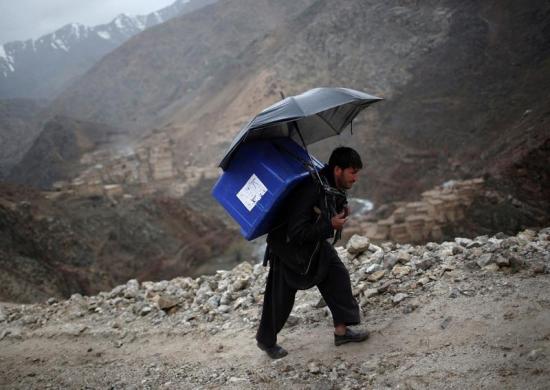Ebola First World Problems
This is not to minimize the real suffering of the real people who have contended with the real disease in the First World. It is a horrifying disease wherever it occurs.
No, this post is about what I’ve been seeing in the news here. When the disease was limited to Africa, it wasn’t seeing much at all in the US. Thousands died, and there was hardly a blip. What I did see seemed mostly to question whether there was any point in sending medical aid.
Now that there have been about seven cases here (the two Samaritan’s Purse health workers, Thomas Duncan, his two nurses, a freelance journalist in Nebraska, and the Doctors Without Borders physician there’s currently a flap about)– now that there have been cases here, the country is hysterical.

A school in Maine put a teacher on administrative leave after parents “expressed concern” — meaning panicked — that she could have been exposed because she visited Dallas with one Ebola patient in quarantine in a hospital that she never visited.
I’ve heard of a caller to emergency services complaining about a pilot running around loose who’d been to West Africa, which later turned out to be the same place in the caller’s small mind as Western Europe. And, yes, that’s funny, but it’s also bad. While that drivel is going on, the dispatcher and the ambulance (they sent out an ambulance?!) can’t respond to actual emergencies.
People of West African extraction are being shunned because, because what? They’re catching it by quantum juju from people 5000 miles away whom they’ve never met? White Africans, interestingly enough don’t seem to be seen as quite as susceptible to magical infection.
Most recently, a bunch of governors saw a great opportunity to get out in front of the hysteria and Doooo Something. Let’s quarantine everybody, sick or not, who’s ever been near West Africa. So when a selfless altruist like Kaci Hickox returns, a woman who’s a nurse for Doctors Without Borders and has treated Ebola patients and actually knows something about the disease, when she returns she becomes a political plaything for Chris Christie and Andrew Cuomo (bipartisanship!) to score points with ignorant voters by dumping her into a senseless quarantine.
Quarantine is for CONTAGIOUS people. It’s a useless waste of money and resources applied to any traveller some bozo happens to have fantasies about. Quarantine can be a medical necessity. It needs to be done on medical grounds. When it’s nothing but jerks lashing out in panic, it’s not only insane, it’s actually counterproductive and increases the spread of disease. (So much for Christie’s and Cuomo’s “leadership.”)
So, that’s the “Keep Calm” part. What about the “Carry On” part?
Are there things that could sensibly be done to help the situation? Why, yes. Yes, there are.
Number One. (This should be in bold all-caps, but I’ve done that already. Must ration myself.) The US needs to get itself an actual healthcare system. Using disease as a profit center for Big Medicine and Big Insurance just isn’t working.
When Thomas Duncan fell ill in Dallas everybody knows what happened next. After his first emergency room visit, he was sent home. Now, note this: Ebola is not contagious until after the patient has run a fever for some time, a day or so, when the virus starts being secreted in body fluids. (The main research paper so far on contagiousness: Bausch et al., 2007. Discussion in Science.)
So if the emergency room had actually worked, he went early enough that there would have been just about no chance he’d been contagious. But the emergency room didn’t work. What hasn’t been mentioned loudly enough is that he had no insurance. Stories about grievously ill uninsured people turned away from emergency rooms in the USA go on forever. There’s even a name for it: “patient dumping.” Some of them die, just like Thomas Duncan. But, this being the First World, most of them aren’t contagious. That was the only part Texas Presbyterian Hospital forgot. They needed a big sign in the physicians’ break room: “CAUTION. Do not kick out patients with incurable contagious diseases! Could have lethal Bad Publicity consequences!”
There’s the first culprit: a profit-oriented “health” system. If we really want to reduce the chances of catching Ebola from random strangers, then we need a health care system that encourages people to get help whenever they feel ill. Nor can it expect them to self-diagnose first so that hospitals see only “real emergencies.” And then the system has to actually treat them for whatever ails them.
Number Two in the list of useful things to do is to help deal with the problem at its source. (In fact, this is Number One, but this post is about first world problems.) They need many things to stem the disease in West Africa: Information distributed everywhere by trusted health workers on how not to transmit the disease. How best to treat ill family members. (There’s a surprising amount that could be done with that, as demonstrated by the knowhow and astonishing strength of the Liberian nurse who took care of her whole family and managed to save most of them.) How to reduce chance of infection. Contact tracing. Enough transport for sick people so they’re not crammed eight to an ambulance. Enough field hospitals and enough beds so contagious patients can be properly cared for.
Would that take money? Yes. But it’s peanuts compared to what it’ll cost if the disease continues to spread. And it’s not as if panic is cheap. (Panic is a total waste, but it’s not cheap.) Would the money have to be spent in Africa? Yes. Get over it.
Notice something about useful actions against Ebola: They involve admitting that fear is not useful. They involve restraining automatic reactions. They involve huge amounts of tedious work. They offer no excuse to lash out at anybody. They’re no fun.
 Print This Post
Print This Post







